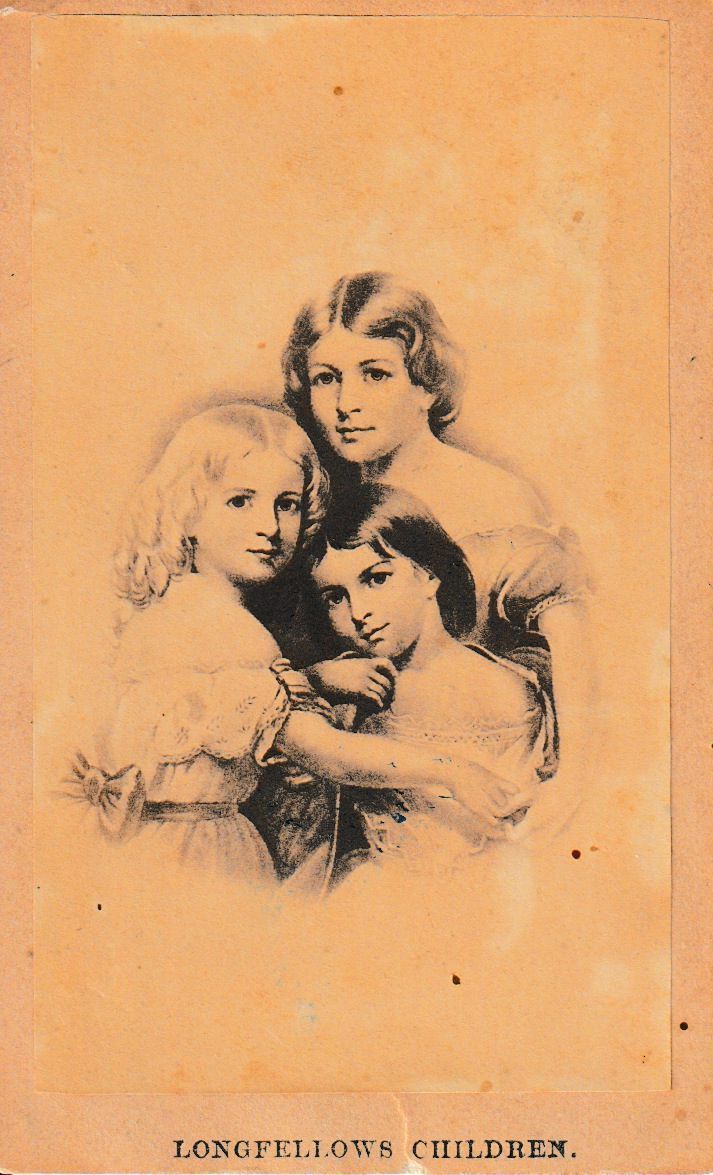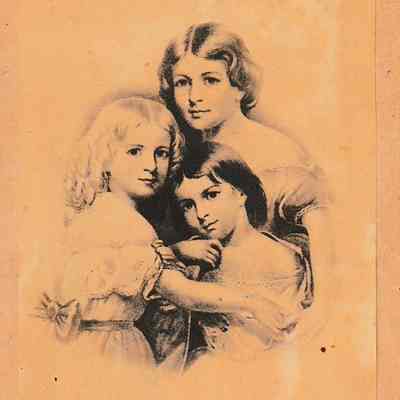Longfellow's Children [Carte de Visite]
Name/Title
Longfellow's Children [Carte de Visite]Description
Carte de Visite by W. N. Bryant of Thomas Buchanan Read's circa 1850 portrait of the three daughters of American poet Henry Wadsworth Longfellow. The original still hangs in the dining room of Longfellow's home in Cambridge, Massachusetts. The image was used during the children's lifetimes to illustrate the poem "The Children's Hour," which refers to "grave Alice" (top), "laughing Allegra" (right), and "Edith with golden hair" (left).Context
"The Children's Hour" is a poem by American poet Henry Wadsworth Longfellow, first published in the September 1860 edition of The Atlantic Monthly. The poem describes the poet's idyllic family life with his own three daughters, Alice, Edith, and Anne Allegra: "grave Alice, and laughing Allegra, and Edith with golden hair." As the darkness begins to fall, the narrator of the poem (Longfellow himself) is sitting in his study and hears his daughters in the room above. He describes them as an approaching army about to enter through a "sudden rush" and a "sudden raid" via unguarded doors. Climbing into his arms, the girls "devour" their father with kisses, who in turn promises to keep them forever in his heart. ** Poem The Children's Hour Between the dark and the daylight, When the night is beginning to lower, Comes a pause in the day's occupations, That is known as the Children's Hour. I hear in the chamber above me The patter of little feet, The sound of a door that is opened, And voices soft and sweet. From my study I see in the lamplight, Descending the broad hall stair, Grave Alice, and laughing Allegra, And Edith with golden hair. A whisper, and then a silence: Yet I know by their merry eyes They are plotting and planning together To take me by surprise. A sudden rush from the stairway, A sudden raid from the hall! By three doors left unguarded They enter my castle wall! They climb up into my turret O'er the arms and back of my chair; If I try to escape, they surround me; They seem to be everywhere. They almost devour me with kisses, Their arms about me entwine, Till I think of the Bishop of Bingen In his Mouse-Tower on the Rhine! Do you think, o blue-eyed banditti, Because you have scaled the wall, Such an old mustache as I am Is not a match for you all! I have you fast in my fortress, And will not let you depart, But put you down into the dungeon In the round-tower of my heart. And there will I keep you forever, Yes, forever and a day, Till the walls shall crumble to ruin, And moulder in dust away!Category
Texas in Focus: Early Photographs from the Lew Anvil Texas Collection

